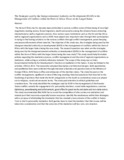| dc.contributor.author | Wandiri, C. M | |
| dc.contributor.author | Matanga, F. | |
| dc.date.accessioned | 2021-12-14T13:14:19Z | |
| dc.date.available | 2021-12-14T13:14:19Z | |
| dc.date.issued | 2021-05 | |
| dc.identifier.uri | https://kenyasocialscienceforum.wordpress.com/2021/06/24/wandiri-c-m-matanga-f-2021-the-strategies-used-by-the-intergovernmental-authority-on-development-igad-in-the-management-of-conflicts-within-the-horn-of-africa-focus-on-the-larger-sudan/ | |
| dc.identifier.uri | http://ir-library.mmust.ac.ke:8080/xmlui/handle/123456789/1831 | |
| dc.description.abstract | The Horn of Africa has for decades been embroiled in various conflicts some of them being of
very high magnitude creating unrest, forced migration, death and poverty among the citizenry
hence attracting international as well as regional concerns, thus various supra institutions such as
the EU and the UN as well as regional organizations such as IGAD have played very important
roles through their participation in trying to find lasting solutions to the various conflicts through
conflict management, peace keeping and peace enforcement where need be. The objective of the
study was, the strategies being used by the intergovernmental authority on development (IGAD)
in the management of conflicts within the Horn of Africa with the larger Sudan being the case
study. The research question was what are the strategies being used by the intergovernmental
authority on development (IGAD) in the management of conflicts within the Horn of Africa with
the larger Sudan being the case study? This study would help formulate policies regarding the
mediation process, conflict management and the role of regional organizations as mediators,
while acting as scholarly reference material. The scope of the study was on Inter-Governmental
Authority for Development’s function on mediation in the Sudan. It may be limited to the
activities 1956 to 2015. The researcher adopted Descriptive and Historical designs. Both
quantitative and qualitative Data were collected through interview schedules and questionnaire at
the Ministry of Foreign Affairs, IGAD liaison office and embassies of the member states. The
study focused on the conflict management, significant in view of the long-standing historical
questions that have led to the hardening of positions that make the North antagonistic to the
South as contentious issues are played out in religious, racial and economic terms. The study
paid attention to ethical guidelines and considerations. The study identified the strategies used by
IGAD in the management of the Greater Sudan conflict, namely the engagement of a personality
mediator, round table negotiations, coercive diplomacy, peacekeeping and enforcement, good
office for good works and state and non-state actors. The study recommended that IGAD has to
avoid the competition of who carries out mediation and instead pool their resources especially
human resources. Identify the weaknesses within their strategies with a purpose of eliminating
the drawbacks that has created a reoccurrence of the conflict in Sudan. Trust is vital in
personality mediation. Both parties have to trust the mediator that their issues will be taken into
consideration and that the outcome of the mediation will be a win, win situation. | en_US |
| dc.language.iso | en | en_US |
| dc.publisher | Journal of African Interdisciplinary Studies | en_US |
| dc.subject | Strategies, Intergovernmental, Authority, Development, (IGAD), Management o,Conflicts, | en_US |
| dc.title | The Strategies used by the Intergovernmental Authority on Development (IGAD) in the Management of Conflicts within the Horn of Africa: Focus on the Larger Sudan | en_US |
| dc.type | Article | en_US |

